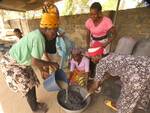
In Ghana, small producers are revolutionizing the production of charcoal. By using savanna grasses to make charcoal briquettes producers promote renewable energy and green jobs. It burns slower, making it ideal for cooking. The Ghana Federation of Forest and Farm Producers and the Millar Institute for Transdisciplinary and Development Studies with Forest and Farm Facility support trained five forest and farm producer organizations on the production of grass charcoal.
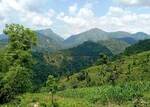
Preserving tree species is a natural way of life for rural and indigenous communities living in symbiosis and reciprocity with forests, and therefore contributing to the long-term health of our planet. These communities over the world take care of the forest while forests offer a vast abundance of products that benefit human health and wellbeing.
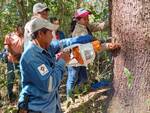
Indigenous women in Bolivia are taking control of the production of copaiba, the "miracle tree" used in traditional medicine to treat inflammation, wounds, colds and rheumatism. The Association of Women Entrepreneurs, or "The Pioneers", harvest the oleoresin of the copaiba, and then process it into cosmetic and medicinal products, while overseeing every part of the production chain.
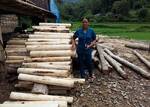
Seven years ago, the May Phay Collective was a group of nine smallholder producers who had little idea of the potential of their land and collective strength. A lack of appropriate roads for timber transportation and limited knowledge on the calculation of timber volume were among the hurdles blocking the growth of May Phay. From 1993 to 2015, the group lived off a single source of income: unprocessed timber. Realizing the hidden possibilities for achievement of the group, Ms. Mai partnered with the Forest and Farm Facility (FFF) to ramp up their timber production and organizational strength.

Smallholder producers in Tanzania have joined forces to access loans and expand enterprises, promoting diversification of farm production and improving local livelihoods.
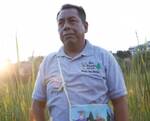
The indigenous community of San Jerónimo Purenchécuaro is an example of the contribution of Indigenous Peoples to climate action and local populations’ wellbeing and livelihoods.
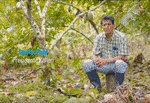
The Amazonian Kichwas people have grown cocoa for centuries, cultivating small parcels of land following the traditional Chakra production system. Now communities are using their unique cultivation techniques to their advantage to access new markets across Ecuador and beyond.
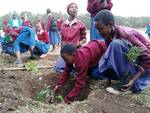
A project in Tanzania supported by FAO, through the Forest and Farm Facility, is setting up forestry and land restoration schools clubs to impart skills to children so that they grow up with a practical knowledge of how to restore and conserve forests.
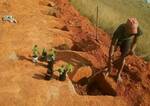
Madagascar, home to hundreds of thousands of flora and fauna species, 85% of which are found nowhere else on Earth, has one of the highest rates of deforestation in the world, with 45% of native forest lost in the past 60 years. A new project aims to restore Madagascar's forests, improve forest governance and support forest landscapes.
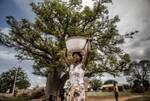
Traditional leaders, Queen mothers and community members partner with local organization to develop community by-laws to safeguard local natural resources and fight landscape degradation.

As the United Nations emphasizes the importance of family farming, producer organizations in Togo and Bolivia are leading the way in shaping national policies that support small-scale farmers and promote sustainable management of resources. These organizations are demonstrating the power of collective voices in achieving significant impact at the government level.
Shanta Neupane had a vision. From Panauti Municipality, in central Nepal, she could see how hard women in the rural forest and farming communities around her worked in their family smallholdings, helping to feed their households. But although, like Shanta herself, they were members of community forest user groups, these same women had little voice in their communities, no assets of their own, and received no personal income from their efforts.
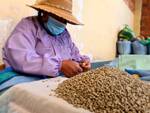
A new organic coffee brand, Bolivian Cafecito, was founded through capacity building, quality control efforts and strengthened partnerships amongst small farmers, the National Association of Coffee Producers, and the Bolivian government. The new brand is exporting to the international market.

- ©FAO/ThangPham
The Forest and Farm Facility and the Viet Nam National Farmers’ Union (VNFU) supported groups of farmers in forming cooperatives in the Yen Duong area. By getting organised into cooperatives, farmers can sell their products more effectively, have a joint voice to influence policy and help their members get access to basic services.

The experience demonstrated the transformation that can occur when people come together with the will and drive to take charge of their lives. Only a few years back, family farmers in this area earned very little income and largely depended on subsistence, but thanks to their collective effort, an economic and social transformation is taking place, improving people’s lives.

Farmers in Madagascar have shown incredible innovation – turning the difficult COVID-19 situation into an opportunity and maintaining their livelihoods by learning new skills and doing things differently.

Around the world in forest communities, women entrepreneurs are making a big difference. More than 750 million women depend on forests for employment and household consumption, and women are among the fastest growing group of entrepreneurs. Federations of forest and farm producers around the world are providing blueprints for supporting women-led sustainable businesses.

To improve her knowledge in farming, Odilia relies on listening to MVIWATA FM’s agricultural radio programs, and this has helped her as well as other farmers to learn better farming skills.

"I was about three years old when I lost my mum. I did not even know her,” says Rita Adibamoli Abarjawe, a 29-year-old single mother from the Kasena Nankana district of Ghana. “Growing up, I went through a lot of stress and financial crises. Sometimes even having food was a challenge.”

Juliette is 35 years old, with four kids. When she finished secondary school in Zambia, her parents couldn’t afford to send her to university, which cost USD $2,000 per year, given that the country’s minimum wage is about $USD 100 a month. When she realized the economic hardships of making a living by growing tomatoes and maize in a region that receives less than average rainfall, she got a group of women together and created “Tubeleke”, which means, “let’s work together.”

When it comes to chocolate, Bolivia might not be the first place you think of yet - but thanks to the combined efforts of FAO, smallholder farming collectives and indigenous producers, it soon will be. Over the past five years, Bolivia’s chocolate producers have been quietly racking up the achievements and gaining global recognition for the quality of their products. They are now part of the 20 best cacaos in the world and these products have increased in value on the global market.

In the northern regions of Viet Nam, forestry and agriculture provide livelihoods for nearly 80 percent of the population. However, nearly half of all households own less than one hectare of land, which often prevents farmers from earning the income they need. To help smallholder farmers find ways to raise their incomes – while sustainably using forest resources – the Forest and Farm Facility (FFF) partnered with the Viet Nam National Farmers’ Union (VNFU) to support farming families in forming life-changing cooperatives.

FFF support has helped members of the National Association of Coffee Producers (ANPROCA) in Bolivia to position the Bolivian coffee at international levelt through the "Quality Rate Tournament - Presidential Coffee." As a result, the commercialization of winning coffees stocks reached, for the first time, a price of USD 50.23 per pound. An investment incentive programme of more than USD 30 million available for smallholder coffee producer organizations over the next five years was created through policy engagements between coffee producers via ANPROCA and the government.

Njoro is an agricultural area on the edge of the Rift Valley in Kenya. It is home to Charity Kathambi Chepkwony, a forest and farm producer who is also the first woman elected to Kenya’s parliament for the Njoro Constituency in Nakuru County. She is also working with FAO to encourage others in her community, particularly women, to plant trees and grow new livelihoods.

The chocolate reaches the Italian market thanks to an agreement with Autogrill and Altromercato. Bolivia is a country of spectacular landscapes and profoundly diverse environments. North of the capital La Paz, in a region called Alto Beni, right where the Andes give way to Amazon forest, FAO is working with a community of Andean people that cultivate a world-famous cocoa variety, the "Criollo" cocoa, renowned for its nutritional values.

In Myanmar, the National League for Democracy (NLD) is transferring the rights to forest land – and all its potential bounty – to local communities. Duncan Macqueen explains how this important move, supported by peer-to-peer learning, is helping to establish new long-term livelihoods.

In Latin America and the Caribbean (LAC), there are multiple case studies that clearly demonstrate the benefits of what forest and farm producers can achieve when they join forces. Numerous producers in several LAC countries are currently improving the lives of youth through education and training projects, empowering indigenous women to better their livelihoods, and strengthening their business skills in order to influence government policies, all with the FFF’s support.
Over 370 million indigenous peoples live in more than 70 countries across the world. While they constitute about five percent of the world’s population, they account for approximately 15percent of the world’s poor. Such is the case with indigenous Mayangna women living in the Bosawás Biosphere Reserve in northern Nicaragua, who face poverty, isolation, domestic violence and triple discrimination based on their gender, ethnicity and socioeconomic situation. The Forest and Farm Facility (FFF) partnership, hosted by FAO, has supported Mayangna women to sell local products and improve their livelihoods. Video: Supporting the indigenous Mayangna women in Nicaragua.
